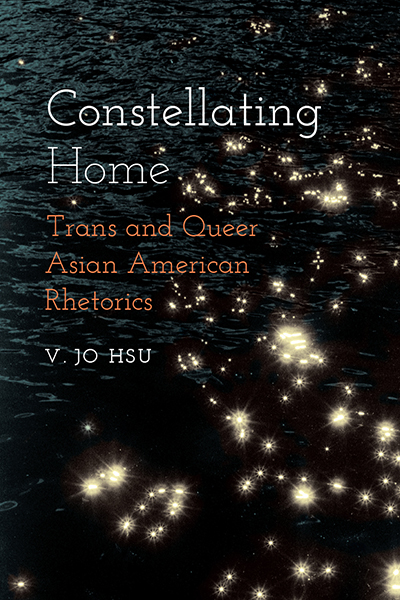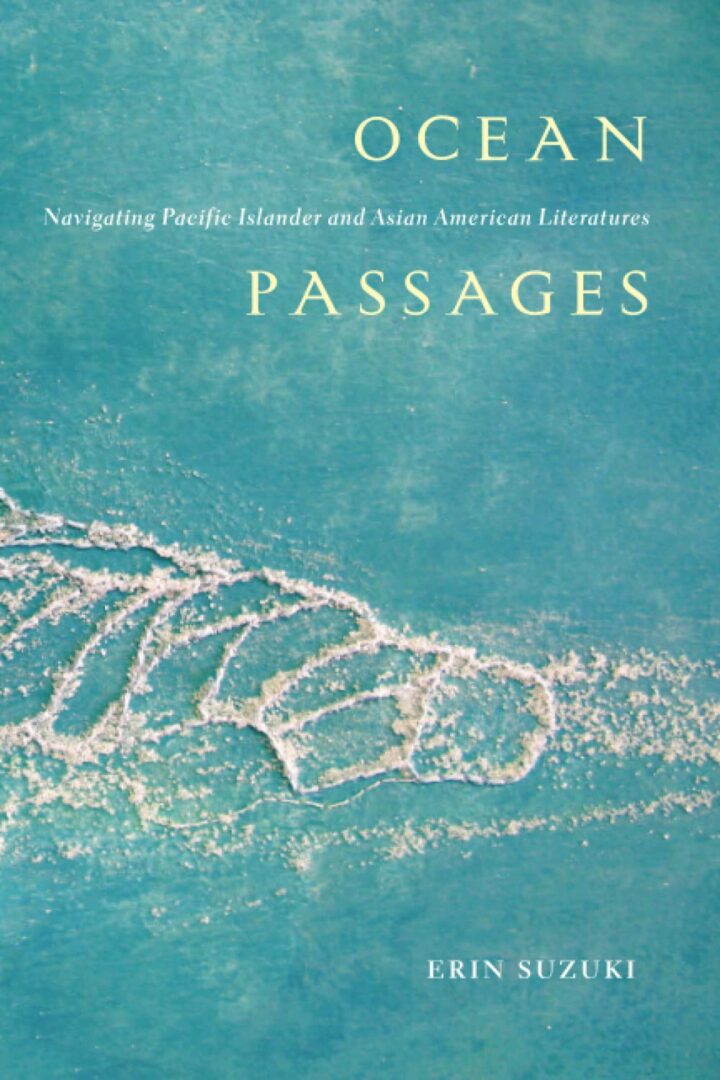Constellating Home: Trans and Queer Asian American Rhetorics by V. Jo Hsu examines how queer and trans Asian American (QTAPI) individuals have reshaped the narratives around their belonging in the United States or elsewhere. Hsu recognizes the ways pervasive narratives like the model minority myth have imbued the meaning of Asian American belonging with capitalist, heteronormative, ableist, racist, and patriarchal notions. Exploring oral histories, visual representations, essays, and numerous other forms of rhetoric, Hsu engages in “diasporic listening,” a method that unpacks how QTAPI individuals have wrestled with these pervasive narratives and found ways of redefining their belonging. By focusing on the stories of trans, nonbinary, disabled, and other minoritized groups within the Asian American diaspora, Hsu shows how these diverse and individual stories contribute more robust meaning around being and belonging as an Asian American.
Keyword: Asian American
Review of Ocean Passages: Navigating Pacific Islander and Asian American Literatures by Erin Suzuki (Temple University Press)
Erin Suzuki’s Ocean Passages is a sustained analysis of how various narratives of “ocean passages” disrupt and revise hegemonic constructions of the Pacific. Through analyses of contemporary Indigenous Pacific and Asian American literatures, Suzuki demonstrates what new paradigms can emerge by bringing Asian and Pacific Islander passages across the same sea into critical relationality.
Multicultural Redemption: Crazy Rich Asians and the Politics of Representation
This essay examines the film Crazy Rich Asians and its surrounding celebratory discourse in order to consider the relationship between multicultural media production and contemporary power dynamics. Crazy Rich Asians has been exalted by the public as a win for diversity, representation, and racial progress. Yet the film is not an anomaly but part of a larger trend in mainstream U.S. television and film that have begun to proliferate shows with “diverse” casts and “progressive” storylines such as Black Panther, Master of None, and To All the Boys I’ve Loved Before, among others. I argue that the contemporary multicultural era has given rise to a common narrative of racial reconciliation, in which inclusion within hierarchy is rendered synonymous with redemption from racial violence. I term this narrative a “multicultural redemption narrative,” and suggest Crazy Rich Asians illuminates how it works. Specifically, this narrative does the discursive and ideological work of constraining the imaginative boundaries of liberation, such that liberation can only be imagined as wielding the very systems of oppression one seeks to escape.


